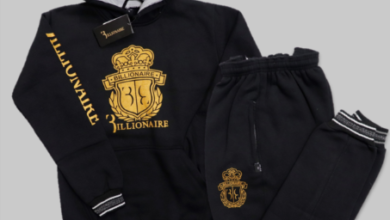Wholesale Clothing Suppliers

Understanding Wholesale Clothing Suppliers
Wholesale clothing suppliers are essential players in the retail industry, providing businesses with access to a wide range of apparel at competitive prices. These suppliers serve as intermediaries between manufacturers and retailers, helping brands stock their stores efficiently. By purchasing in bulk from wholesale clothing suppliers, retailers can benefit from reduced costs, better variety, and quicker inventory turnover. Understanding how these suppliers operate is key for any retail business aiming to grow and meet consumer demand.
Types of Wholesale Clothing Suppliers
There are various types of wholesale clothing suppliers, each catering to different segments of the retail market. Some suppliers specialize in specific clothing categories, such as casual wear, formal attire, or activewear. Others offer a broad selection covering multiple styles and price points. Additionally, some wholesale clothing suppliers focus on supplying boutique stores with unique or designer items, while others cater to large-scale retailers with mass-produced garments. Choosing the right supplier depends on the retailer’s niche and customer preferences.
Benefits of Working with Wholesale Clothing Suppliers
Retailers that partner with wholesale clothing suppliers enjoy several advantages. Bulk purchasing reduces per-unit costs, allowing retailers to offer competitive prices or enjoy higher profit margins. Wholesale suppliers often have access to a wide variety of styles and sizes, enabling retailers to stock diverse inventories that appeal to different customer groups. Moreover, many wholesale clothing suppliers provide flexible order quantities and quick turnaround times, which are crucial for responding to changing market trends.
How to Find Reliable Wholesale Clothing Suppliers
Finding trustworthy wholesale clothing suppliers can be challenging due to the vast number of options available. Retailers should conduct thorough research to identify suppliers with a good reputation for quality, reliability, and customer service. Attending trade shows, browsing online directories, and seeking recommendations from industry peers are effective ways to discover reputable suppliers. Additionally, reviewing product samples and reading client testimonials can help ensure that the supplier meets the retailer’s standards.
See also: Fast Solutions with Trigonometric Identities Calculator
Evaluating the Quality of Wholesale Clothing Suppliers
Quality is a critical factor when selecting wholesale clothing suppliers. Retailers should assess fabric quality, stitching, and overall garment construction to ensure that products will satisfy their customers. Some suppliers offer certifications or guarantees regarding their manufacturing processes and materials. Retailers can request sample orders to inspect products firsthand before committing to larger purchases. Maintaining high-quality standards protects the retailer’s brand image and reduces return rates.
Pricing and Negotiation Strategies
Pricing varies significantly among wholesale clothing suppliers based on factors such as material quality, production methods, and order volume. Retailers should compare prices from multiple suppliers to identify the best value without compromising quality. Negotiating terms, including bulk discounts, payment schedules, and shipping costs, can further enhance profitability. Building long-term relationships with wholesale clothing suppliers often results in better deals and priority service.
The Role of Technology in Wholesale Clothing Supply
Technology has transformed how wholesale clothing suppliers operate. Many suppliers now use online platforms to showcase catalogs, process orders, and track shipments, making it easier for retailers to manage inventory. Advanced inventory management systems help suppliers maintain optimal stock levels and forecast demand. Additionally, some wholesale clothing suppliers employ digital tools for quality control and product customization. Embracing technology streamlines the supply chain and improves communication between suppliers and retailers.
Challenges Faced by Wholesale Clothing Suppliers
Wholesale clothing suppliers face several challenges in the dynamic retail landscape. Fluctuating raw material costs, changing fashion trends, and global supply chain disruptions can impact their ability to deliver products consistently. Managing inventory effectively to avoid overstocking or shortages is a constant concern. Moreover, increasing consumer demand for sustainable and ethically produced clothing puts pressure on suppliers to adapt their sourcing and manufacturing practices. Successful suppliers remain agile and innovative to navigate these challenges.
Trends Shaping Wholesale Clothing Suppliers
Several trends influence the wholesale clothing supply sector. The rise of fast fashion has increased demand for rapid production and delivery. Meanwhile, growing awareness of environmental issues is driving suppliers to offer eco-friendly and ethically made products. Customization and personalization are becoming popular, pushing suppliers to provide flexible options for retailers. Additionally, the expansion of e-commerce has created new opportunities and competition, requiring wholesale clothing suppliers to enhance their digital presence and service quality.
How Retailers Can Maximize Their Partnership with Wholesale Clothing Suppliers
Retailers can strengthen their partnerships with wholesale clothing suppliers by maintaining clear communication and sharing market insights. Collaborating on product selections and inventory planning helps ensure that the supplier’s offerings align with customer preferences. Timely payments and respectful negotiations build trust and foster long-term cooperation. Retailers should also provide feedback on product performance and market trends to help suppliers improve their services. A strong partnership benefits both parties by driving sales and customer satisfaction.
Conclusion
Wholesale clothing suppliers play a vital role in the retail industry by providing access to diverse apparel at competitive prices. Understanding the types of suppliers, evaluating quality, and embracing technology are key steps for retailers seeking reliable partners. Navigating challenges and adapting to market trends help suppliers stay relevant and efficient. By building strong relationships with wholesale clothing suppliers, retailers can secure their inventory needs, enhance profitability, and satisfy customer demands in a competitive marketplace.



